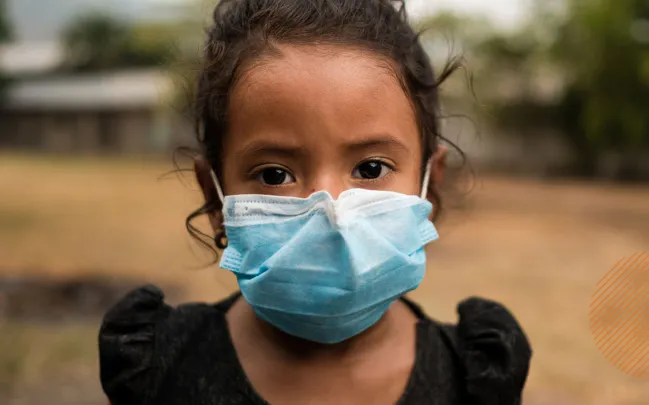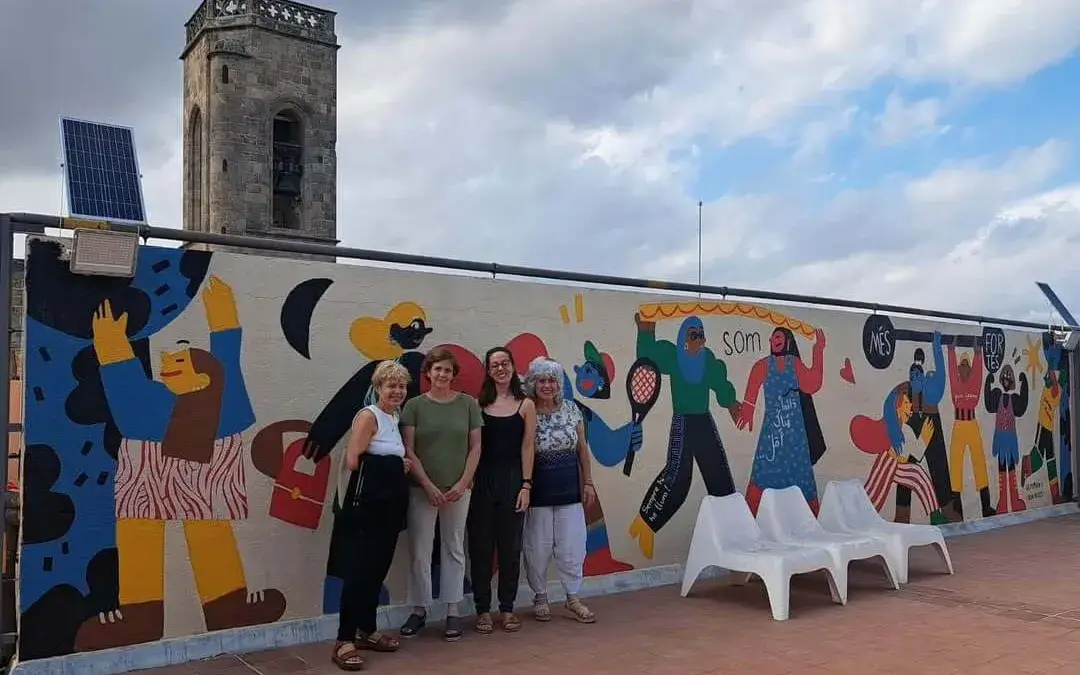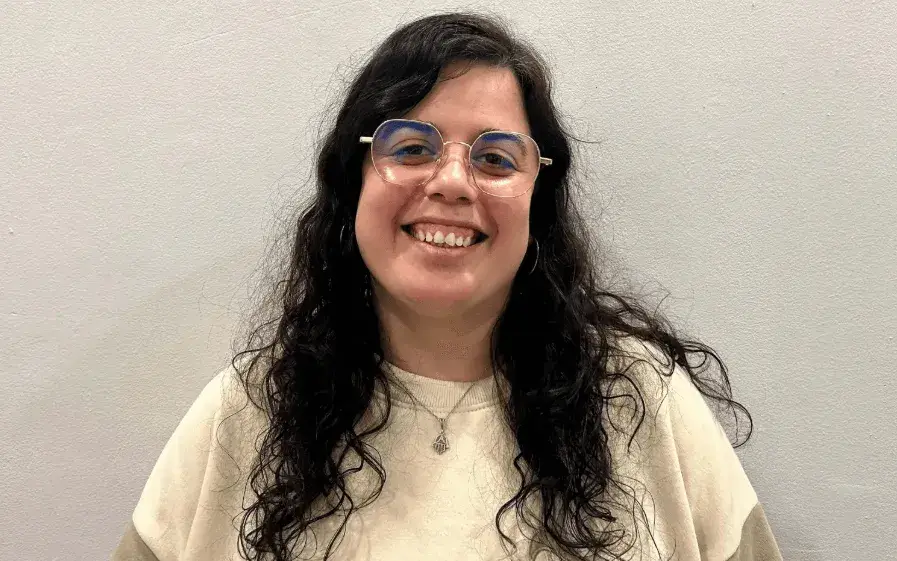Emily Janoch: “We need to build responses that prioritize gender equality, resilience and extreme poverty instead of returning to 'normality'"
The director of knowledge management and learning for CARE talks about how Covid-19 has increased the number of people who are at risk of poverty and how reversing this growth.
For the first time since 1998, it’s expected that poverty rates will go up as the global economy falls into recession due to Covid-19. Do you think that it will be a transitory trend until the pandemic will be under control?
How fast we rebound from the rise in poverty rates depends on how we react to the crisis. If we prioritize building forward—responses that will prioritize gender equality, social justice, and overturning long-standing structural inequalities that have kept many people on the brink of poverty—we have a chance of coming out of the recession more quickly and reversing the fact that poverty rates are rising. If our COVID-19 responses simply return us to the unjust and unequal systems we had before the pandemic, we’d expect to see the recession and rising poverty rates continue for much longer.
Why Covid-19 has increased the number of people who are at risk of poverty?
Much of the progress out of poverty over the last decades has focused on a few key indicators that indicate macroeconomic growth—especially the $1.90 poverty line. That progress often masks deep structural inequalities, and we are seeing that it was very fragile. The story we were telling obscured the number of people who had progressed to the edge of poverty without having the resources they need to face shocks. What COVID-19 has exposed is that as a society, we haven’t invested in building more equal systems—like safety nets that work for everyone.
One example CARE’s research is confirming in nearly every country where we work is that women are more likely to be in the informal economy—selling street food, setting up stalls in markets, running small businesses out of their homes—and that they cannot qualify for wage replacement programs governments are setting up.
Another example is that many women in Asia had made economic progress by working in garment factories. When COVID-19 hit, many brands that sell clothes not only cancelled orders, they actually refused to pay workers for clothes they had already produced. Factories are laying off workers, often starting with workers who have been vocal about demanding rights and wages. Those are just two illustrations of how our systems failed to plan for shocks, especially for people who had progressed out of poverty, but not very far.
Is the system prepared to fight against a growth of extreme poverty?
The system can be prepared if we react well now. Making sure that the people who are already falling back into poverty—especially women and historically underrepresented groups—are helping make the decisions about what happens next is a key part of the solution. Building responses that prioritize gender equality, resilience, and responding to extreme poverty instead of simply returning to “normal” will help us fight extreme poverty now and for the future.
The system can act now to ensure that we’re doing a better job of distributing both rewards and burdens of economic growth, and focusing on justice. That will take a significant shift in the way we’re reacting—which right now is replicating and perpetuating the inequalities in the system. But it’s absolutely possible if we plan for it.
What role is Care playing in order to eradicate poverty all over the world?
Even before COVID-19, CARE was working to eradicate extreme poverty. In 2019, we worked in 100 countries and worked with nearly 69 million people. Since 2015, we have helped 130 million people change their lives. In COVID-19, we’re reaching nearly 22 million people in 69 countries to cope with the crisis.
We do this by focusing on supporting people to make the decisions that change their own lives. That might mean helping women entrepreneurs in Mali find ways to make and sell masks to respond to COVID-19, or it could be providing cash transfers to people in Yemen who need to buy food and build up their savings. In Ecuador, it means working with local organizations to build apps that help survivors of Gender Based Violence to access services even during quarantine.
The common thread is focusing on people’s own abilities and the relationships and systems that support them so they can make the choices that work for them. We put a special emphasis on gender equality because we know that’s a key part of finding solutions that will work for everyone.
What difficulties do you have to face in your daily task?
COVID-19 has created a lot of new challenges—movement restrictions, reductions in international aid budgets, and the constantly evolving context are all obstacles our staff have to overcome on a daily basis. We are facing increasingly volatile situations in almost every country in the world. This is on top of challenges we already had, like responding to the impacts of climate change and unprecedented numbers of refugees all over the world.
How can people help you?
Get involved in the issues. Reach out to your government to advocate for more resources to respond to COVID-19 and to eradicate poverty. Support policies and decisions the prioritize gender equality and social justice. Get your friends involved and find ways to spread the message. There’s a list of actions here: https://www.careaction.org/ Donate to CARE and other humanitarian organizations that are responding now to reduce the slide into extreme poverty.
From your point of view, what steps do you propose global institutions must take to eradicate poverty? Were we on the right track before the pandemic?
What COVID-19 shows us is that we weren’t make enough progress before the pandemic, and we had been overlooking critical components of a global system that ends poverty. We weren’t focusing enough on equality, justice, and resilience. Some of our immediate recommendations are:
- Prioritize immediate safety nets. All actors providing support during COVID-19—either through existing safety net programs, special COVID-19 relief programs, or humanitarian aid—should focus on the areas women are prioritizing: livelihoods, food, mental health, and gender-based violence (GBV) services. Every actor must meaningfully include women in designing COVID-19 assistance. Programs should deliberately target female recipients to ensure that support effectively meets the needs of both men and women. This also means sustaining reproductive health services and GBV prevention and response as essential services.
- Invest in women leaders. COVID-19 coordination and planning platforms are most effective when they are diverse and gender-balanced.[i] All COVID-19 leadership committees and task forces should include at least 50% women and prioritize partnering with women’s rights organizations. Actors should also work to engage men and boys in supporting women, women’s rights, and gender-equitable responses.
- Fill the data gap. CARE has seen the power of listening to women and girls and other traditionally underrepresented people, and how the stories they tell are different from what aggregate data shows us. It also shows that it is possible to fill the data gap to design more effective responses. All actors must collect, publish, and act on sex- and age-disaggregated data, and focus on the gaps between different people’s needs.
- Be accountable for equality. Every actor delivering COVID-19 responses should publish a status report on their activities to date and actions they have taken to listen to women’s experiences, uphold women’s rights, and ensure that women and girls have equal access to relief and recovery efforts.
Looking ahead, How do you see the world in ten years? Are you optimistic?
We see the possibility of a more equal, just, and sustainable world. It doesn’t even have to wait 10 years. We’re optimistic that we can get there if we start now. We’ve seen incredible resilience, ingenuity, and progress with the women CARE supports.
To take just one example, a 24-year-old woman in Cameroon and her friends found ways to distribute food to more than 100 families in extreme poverty. Women in savings groups in Bangladesh organized CARE packages for beggars in their community to ensure that they could eat. These weren’t wealthy or well-connected women; they were women in CARE’s programs who are on their own journeys out of poverty. If we follow those women’s example and prioritize that spirit of equality, listening to, and supporting the people who need it most—we can transform the world. We’re already doing it together.







Add new comment